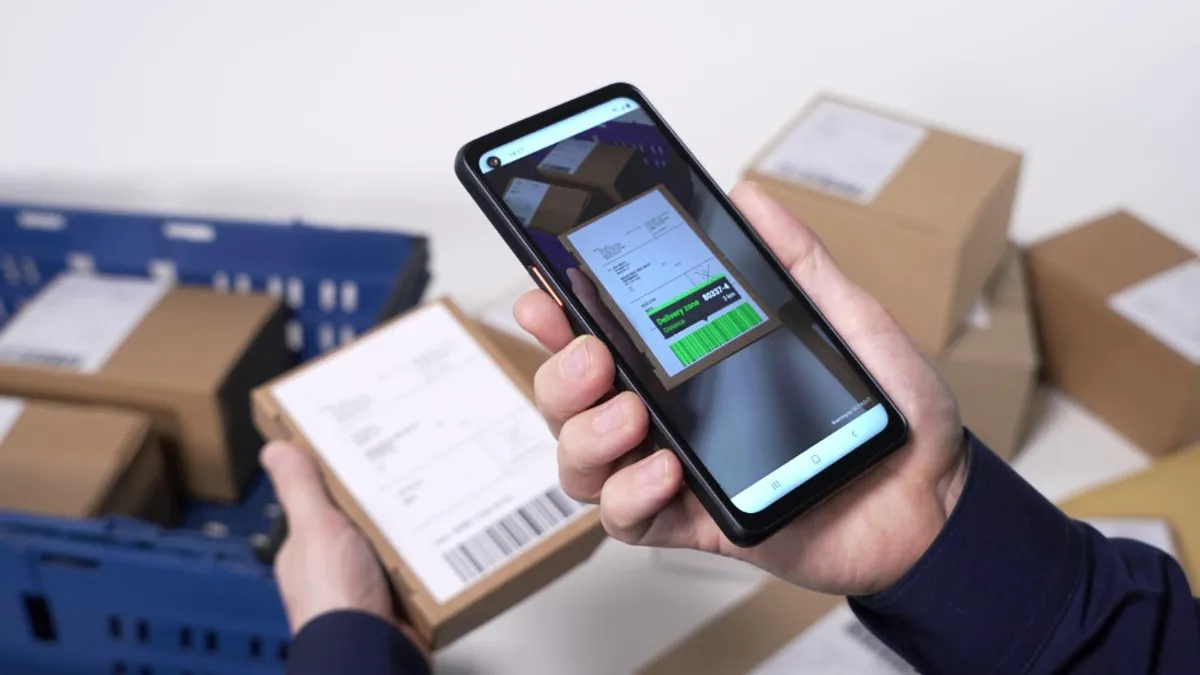Brief:
- Scandit, the enterprise-focused augmented reality (AR) and mobile computer vision developer, raised $80 million in Series C funding. Leading the investment in the Zurich-based company was Silicon Valley group G2VP, joined by Atomico, GV, Kreos, NGP Capital, Salesforce Ventures and Swisscom Ventures.
- In the announcement, Scandit said demands for its contactless solutions are climbing due to the coronavirus pandemic. Click-and-collect was called out as a particularly strong point of growth that has led retailers and transport companies to seek ways to safely manage the growing demand for home delivery.
- Scandit's platform provides app-based bar code scanning, text recognition, object recognition and AR solutions that work on camera-equipped mobile devices, including smartphones, wearables and drones. The company works in sectors from supply chain and logistics to healthcare, and names 7-Eleven, Instacart, Alaska Airlines and FedEx among its blue-chip clients.
Insight:
Scandit's latest round of funding keys into a growing opportunity for mobile developers, as the need for contactless business solutions is unlikely to cool in the near future with lingering concerns related to the novel coronavirus. It's another instance of the pandemic speeding up a trend that was on the rise prior to the public health crisis, but is now solidifying in the mainstream as consumers prioritize home delivery and try to avoid handling cash at retail locations.
Click-and-collect's massive jump in usage has been apparent in essential business categories that have continued operations while other sectors remain shuttered. The number of surveyed U.S. adults who reported increasing their online grocery shopping spiked from 11% to 37% between March 1-22, according to CivicScience data cited by eMarketer. Retailers like Walmart also recorded explosive growth for online shopping in their latest quarterly earnings, which provided a line of support as other aspects of operations were rocked by the pandemic.
Many analysts forecast that pandemic-driven online shopping habits will prove sticky, compelling businesses to build out their e-commerce infrastructure now, but in ways that safeguard against spreading the virus. In the blog post, Scandit, which previously raised $43 million in funding, highlighted how its platform offers flexibility, such as providing workers with scanning apps that function on both personal and corporate-owned mobile devices.
"Scandit's platform puts an enterprise-grade scanning solution in the pocket of every employee and customer without requiring legacy hardware," Ben Kortlang, general partner at G2VP, said in a press statement. "This bridge between the physical and digital worlds will be increasingly critical as the world accelerates its shift to online purchasing and delivery, distributed supply chains and cashierless retail."
On the physical retail front, contactless payments, which previously struggled for adoption among U.S. consumers, are indeed experiencing a boom due to the pandemic, as reported in Bloomberg. However, they represent another area where quick, safe implementation of technology from businesses will be crucial. While the current uptick in contactless payments is linked to fears around the coronavirus, the trend could support a more favorable sentiment for in-store mobile solutions that was emerging before COVID-19 hit the U.S.
In a January survey by Sofi, 78% of consumers reported that retailers that implement mobile technology for both shoppers and employees enable a faster shopping experience, improving areas like expedited checkout and product discovery. Nearly half of respondents said they preferred sales associates to use mobile devices for checkout on the sales floor over going to a traditional cash register.















